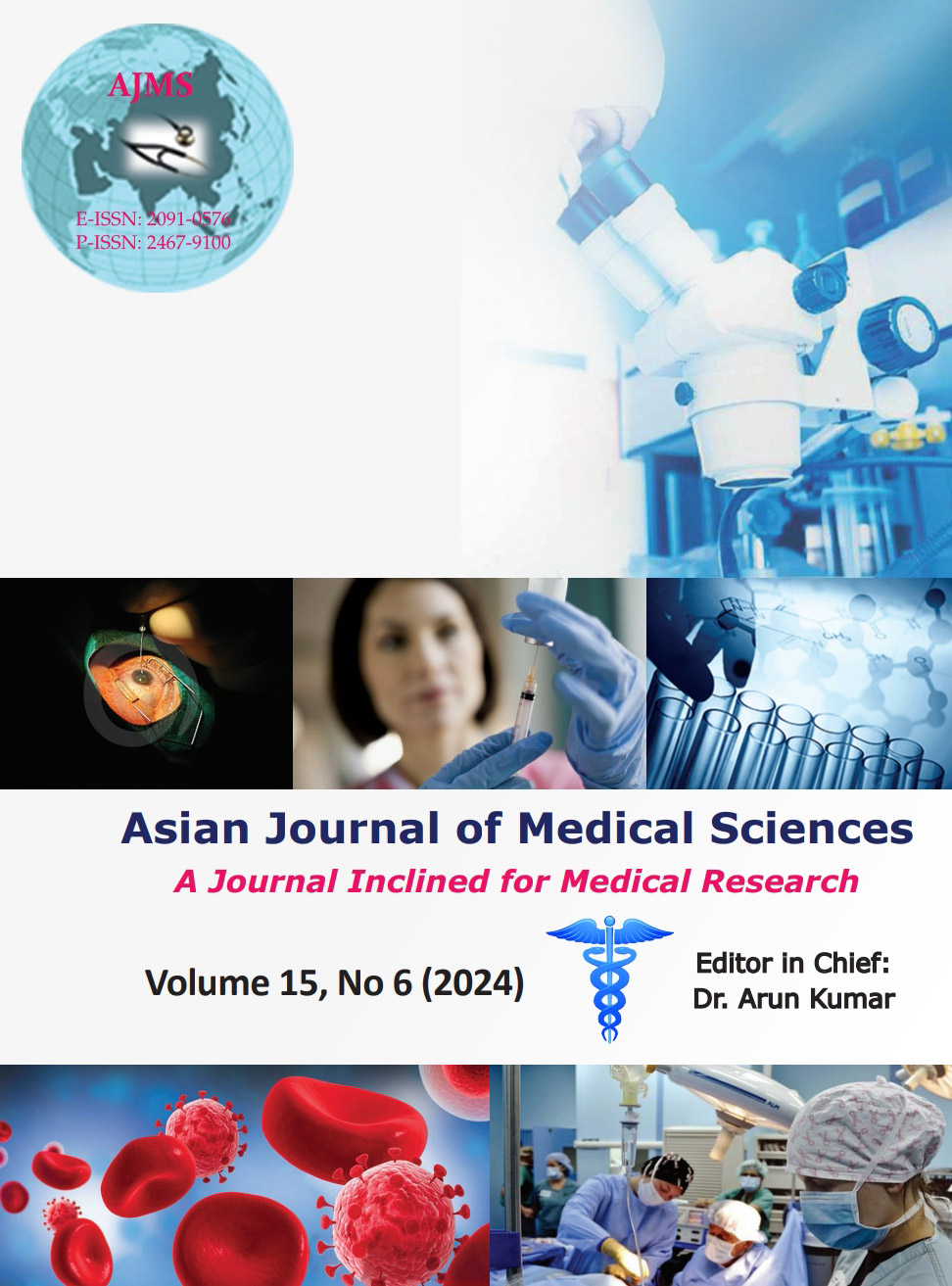Assessing the link between rivaroxaban concentration and the onset of renal impairment in elderly patients: A retrospective observational study
Keywords:
Rivaroxaban; Renal impairment; Elderly patients; Anticoagulants; Drug monitoringAbstract
Background: Rivaroxaban is a widely used anticoagulant, but its impact on renal function, particularly at varying plasma concentrations, remains a critical area of investigation. This study examines the relationship between rivaroxaban concentration and renal impairment in elderly patients.
Aims and Objectives: The aim of the study was to investigate the relationship between rivaroxaban plasma concentrations and the incidence of renal impairment in elderly patients.
Materials and Methods: A retrospective observational study was conducted on 100 elderly patients prescribed rivaroxaban for atrial fibrillation or venous thromboembolism prevention. Patients were categorized based on their rivaroxaban plasma concentrations into three groups: Low (<50 ng/mL), medium (between 50 and 200 ng/mL), and high (>200 ng/mL). Renal impairment was characterized as having an estimated glomerular filtration rate <60 mL/min/1.73 m². The analysis of the data consisted of Chi-square testing and multivariable logistic regression, with adjustments made for age, gender, baseline renal function, and treatment indication.
Results: The incidence of renal impairment escalated with increasing rivaroxaban concentrations, 20%, 40%, and 60% in low, medium, and high concentration groups, respectively. Statistical analysis revealed a significant association between rivaroxaban concentration and renal impairment (χ2=10.57, P=0.005). Patients with high concentrations had 2.8-fold higher odds of developing renal impairment compared to the low concentration group. Cox proportional hazards analysis showed a 2.2 times higher hazard of renal impairment in high versus low concentration groups over 18 months.
Conclusion: Higher trough plasma concentrations of rivaroxaban are associated with an increased risk of renal impairment in elderly patients. This finding highlights the importance of monitoring rivaroxaban levels to mitigate renal risks.
Downloads
Downloads
Published
Versions
- 2024-06-04 (2)
- 2024-06-01 (1)
How to Cite
Issue
Section
License
Copyright (c) 2024 Asian Journal of Medical Sciences

This work is licensed under a Creative Commons Attribution-NonCommercial 4.0 International License.
Authors who publish with this journal agree to the following terms:
- The journal holds copyright and publishes the work under a Creative Commons CC-BY-NC license that permits use, distribution and reprduction in any medium, provided the original work is properly cited and is not used for commercial purposes. The journal should be recognised as the original publisher of this work.
- Authors are able to enter into separate, additional contractual arrangements for the non-exclusive distribution of the journal's published version of the work (e.g., post it to an institutional repository or publish it in a book), with an acknowledgement of its initial publication in this journal.
- Authors are permitted and encouraged to post their work online (e.g., in institutional repositories or on their website) prior to and during the submission process, as it can lead to productive exchanges, as well as earlier and greater citation of published work (See The Effect of Open Access).




